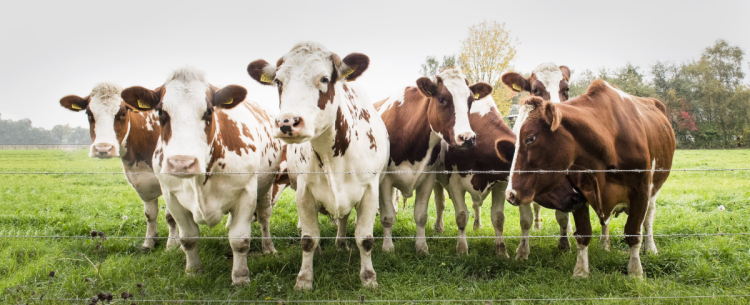News & Updates
Five steps farmers can take to prevent on-farm poisoning

Food Standards Scotland (FSS) is urging farmers to follow five steps to prevent lead and copper poisoning this grazing season.
The steps encourage farmers to check farmland for discarded materials, including electric fence batteries and flaking paint, that are sources of lead poisoning, as well as being mindful of the causes of copper poisoning in sheep.
If exposed, lead can be highly toxic to cattle, causing severe pain, convulsions, blindness, and can very often be fatal.
Unfortunately, some farmers across Scotland have experienced the devastating effects of lead poising on their livestock.
Two weeks after turning out his youngstock, David Warwic, who farms in the Scottish Borders, found three cows had become ill with signs of poisoning, with one of them dying shortly after.
“We put three one year old heifers out into a roadside field in mid-May and about two weeks after turnout one of the three was foaming at the mouth, in pain and grinding her teeth, looked dazed and blind. Within minutes of arrival back at the steading the first one died which was harrowing to witness. The cause of this was a discarded car battery someone had fly tipped into the hedge and it had then rolled into the field.”
To support farmers in preventing lead or copper poisoning this grazing season, FSS recommends the following five steps:
- Check that vehicle and fence batteries are stored securely and out of reach of animals.
- Check fields and fences for fly-tipping before putting animals out to pasture.
- Check buildings and equipment for old lead paint peeling off.
- Check what feed sheep have access to. Some concentrates and minerals are for cattle only.
- Check the supplements are right for your sheep as breeds such as Texel, Suffolk and North Ronaldsay are more susceptible to copper poisoning.
Stuart McAdam, FSS’s Head of Incidents, reinforces the on-farm safety messaging, saying lead poising can have a devastating impact and can put consumers at risk.
“Lead is a highly toxic metal which can cause slow or stunted growth, blindness, infertility, birth defects and death. Not only are the health impacts on livestock distressing, but there are financial implications such as veterinary fees, carcass disposal and loss of market value.
“Contaminated meat, offal and milk containing lead at levels above legal limits is unsafe and illegal to sell. In addition, there is a minimum 16-week withdrawal period which can cause delays across supply chain and incur costs for testing.”
“We know farmers are serious about the health and welfare of the animals in their care, but because incidents of lead poisoning often peaks in spring when cattle are put out to pasture, we’re re-launching our on-farm poisoning prevention campaign.
“Lead batteries, old paint, bonfire ash and fly-tipping are the primary causes of lead poisonings. Following our five recommended steps is the best strategy to protect your livestock and prevent on farm poisoning.”
You can find out more information about on-farm incidents on the FSS website: foodstandards.gov.scot.